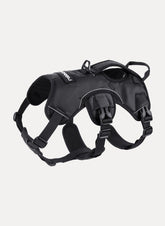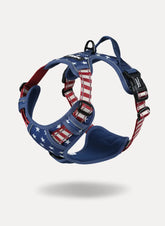8 Summer Cat-Raising Tips
Summer is a time of fun and adventure, but it's important to remember that rising temperatures can pose risks to our beloved feline companions. As the mercury climbs, it's crucial to take proactive measures to keep our cats safe and comfortable. In this blog post, we will discuss how do cats cool down, do cats shed more in the summer, and the top summer safety tips for cats.
How do Cats Cool Down?
Wondering how do cats cool down?
During summer, cats cool down by seeking shade and grooming themselves. Through grooming, they spread saliva over their fur. Their evaporating saliva causes a cooling effect for them. Our feline pals have sweat glands on their paw pads. They get rid of excess heat through the sweat glands on their paw pads.
8 Practical Summer Safety Tips for Cats
Cats are highly susceptible to heat-related illnesses, dehydration, and other hazards during the hot summer months. However, by following these simple guidelines, you can ensure that your feline friend stays safe and comfortable all summer long.
- Hydration is Key
Just like humans, cats need to stay hydrated in hot weather. They can quickly become dehydrated in hot weather, leading to serious health issues. Always provide fresh, cool water for your cat to drink throughout the day. When heading outdoors, carry a portable water bowl for your cat. Encourage them to drink regularly to prevent overheating. If you notice signs of dehydration, such as excessive panting, dry gums, or lethargy, contact your vet immediately.
- Time Outdoor Activities Wisely
Don’t let your cat go out during the hottest parts of the day. The same goes for summer days with high humidity. Early mornings or evenings when temperatures are cooler are ideal for outdoor activities. Hot pavement or sand can burn your cat's paws, so check the ground temperature with your hand before venturing out. If it's too hot for your hand, it's too hot for your cat's paws. Get Rabbitgoo 33" Cat Tree for Indoor Kittens.
- Provide Ample Shade and Ventilation
In summrs, cats are susceptible to heatstroke, that can be life-threatening. To prevent this, it's important to limit your cat's exposure to extreme heat and provide them with cool, shaded areas in your yard or during outdoor excursions. A well-ventilated, sheltered spot will help your cat stay cool and prevent heatstroke. Set up a pool or a designated area with a misting system where they can cool off on hot days. Get a hygiene and a clean cat bed for your kitty.
- Never Leave Your cat in a Parked Car
Leaving your cat unattended in a parked car, even with the windows cracked, can be extremely dangerous. Within minutes, the temperature inside a car can soar to dangerous levels, leading to heatstroke or even death. If you need to run errands, it's best to leave your cat at home where they are safe and comfortable. If you’re driving around with your cat in the car, bring water and a water dish and take your cat with you when you leave the car.
- Watch for Signs of Heatstroke
Heatstroke is a serious condition that can be life-threatening for cats. Be vigilant for signs such as excessive panting, drooling, rapid breathing, weakness, vomiting, or collapse. If you suspect heatstroke, move your cat to a shaded area, apply cool water to their body, and seek immediate veterinary assistance.
- Protect Against Parasites
Summertime brings an increased risk of fleas, ticks, and mosquitoes. If not protected, your cat is at risk for heartworm, Lyme disease, and a host of other nasty and dangerous conditions. Ensure your cat is protected with veterinarian-approved flea and tick prevention treatments. Consider using cat-safe mosquito repellents to reduce the risk of mosquito-borne diseases like heartworm. Do a thorough skin check on your cat after coming inside to look for ticks and fleas.
- Be Mindful of BBQ Hazards
Backyard barbecues are a staple of summer, but certain foods can be toxic to cats. Avoid feeding your cat onions, garlic, chocolate, alcohol, and any foods seasoned with spices or ingredients harmful to cats. Secure garbage bins to prevent scavenging and potential ingestion of harmful substances.
- Provide Paw Protection
When the sun is cooking, surfaces can get really hot! These hot surfaces like asphalt, sand, metal, or concrete can burn your cat's paw pads. Consider using cat booties or paw wax to provide protection during walks or outdoor activities. Regularly inspect and clean your cat's paws to remove any debris or irritants.
Do cats shed more in the summer?
Summer shedding in cats occurs as a result of the temperature change. During warm weather, cats shed their winter undercoats to make way for a much lighter summer coat.
Though shedding in summer is normal for cats, cat owners need to be on the lookout for excessive shedding, caused by health problems, nutritional deficiencies, or other problems.
Signs to Look Out For in Your Cat
If your cat spends a little too long in the sun, it’s good to be aware of the specific signs and symptoms of dehydration and heatstroke. The most common signs of dehydration and heatstroke in cats are:
- Lethargy and reduced energy levels
- Dizziness
- Trouble standing up
- Weakness and increased heart rate
- Loss of skin elasticity
- Trouble walking straight
- Loss of appetite
- Very sticky saliva
- Excessive panting
- Excessive thirst and drooling
- Vomiting or diarrhea
- Bright red gums
If you notice any of these symptoms coincide with your cat spending too long in the sun, then it’s important to act quickly. Take your cat to a cooler location and ensure that it drinks an ample quantity of water.
Final Thoughts
By following these top summer safety tips for cats, you can ensure that your feline friend stays happy, healthy, and safe during the warmer months. Remember to prioritize hydration, offer shade and ventilation, avoid hot pavement, and be aware of signs of heatstroke.
With a little extra care and attention, you can enjoy a fantastic summer with your cat while keeping them protected from heat and potential hazards. Remember to consult your veterinarian for any specific concerns or additional recommendations to keep your cat safe during summer.
Enjoy the season together and create lasting memories with your canine companion!









